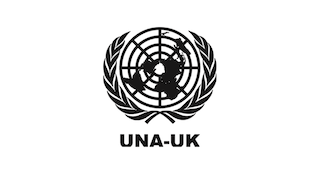UN Careers FAQs
Applications
1. How do I apply for a job with the UN?
Applications for positions at any of the UN Headquarters and related offices must be made through the online Inspira application system. Find out more about the application process on the UN Careers Website and by reading this manual for applicants.
Applications for positions with other UN organisations should be made directly via the organisation's careers channels. For example, to search and apply for roles within the UN Development Programme, visit the UNDP jobs website.
2. Why does the UN recruitment process take so long?
The UN Secretariat is aware that its recruitment processes can be lengthy and is actively trying to reduce the timeframe. However, it can still take several months for the process to be completed. There are many reasons for this, such as the number of stages and people involved, and changes in the nature or funding of posts. For example, humanitarian-related jobs can be delayed due to sudden emergencies, institutional or political considerations.
3. I have applied via Inspira or directly to an organisation and never received a feedback on my application. Why didn’t I get a feedback on my profile or on my application?
A high number of recruitments are being processed by a limited amount of HR professionals. This is why the recruitment processes with the UN is widely automated. Only when applications that pass the first stage of shortlisting are handled in a more individual manner.
4. How many times can I apply for different roles?
There is no limit to the number of vacancies to which you can apply. It’s up to each candidate to review the responsibilities, competencies and qualifications required for a particular vacancy before deciding to apply for a position. However, there is a possibility that you may be perceived in a negative way if you apply for many vacancies that demand very different qualifications.
5. I don’t have enough years of experience – can I still apply?
Because the UN receives so many applications for any given vacancy, an automated screening process is used to shortlist applicants. One of the basic criteria is years of experience. This means that it’s highly unlikely that any applicants who do not have the required years of experience will be shortlisted.
Internships
1. Which UN organisations provide internships?
You can undertake an internship with the UN Secretariat in New York, in any of the UN Offices worldwide, or with a whole range of organisations within the UN system. You can find out more about interning with UN on the Internships section of the careers portal.
2. What qualifications do you need to undertake a UN internship?
The requirements for applying to different UN internships vary widely. Internships at the UN Secretariat and some UN organisations ask that applicants are in the process of studying a Masters or ‘second degree’, while others accept applicants who are no longer studying, or who only hold Bachelor’s degrees. You can find out more about the requirements of difference internships on the Internships section of the careers portal.
3. What do you do in a UN internship?
Interns with the UN will be called upon to perform a range of tasks, depending on their background, interests and the department or organisation that they’re working with.
Tasks might include
- Assistance in drafting and preparing official documents
- Attending and summarizing conferences and meetings
- Document, legal and internet research
- Assistance during conferences
- Working on the web-presentation
- Evaluation of projects
- Compiling statistics
- Media analysis
- Speech-writing
4. Are UN internships paid?
Unfortunately, no UN internships are paid. All costs related to travel, insurance, accommodation, and living expenses must be borne by either the interns or their sponsoring institutions, if this is applicable.
Working for the UN
1. What are the working languages of the UN?
English and French are the working languages of the Secretariat. Some of the other official languages may also be working languages in the Regional Commissions which are located in Santiago, Bangkok, Beirut, Geneva and Addis Ababa.
2. What sort of salaries do UN staff members receive?
The United Nations offers you an attractive remuneration package with competitive pay and benefits. The level of pay for staff in the Professional and higher categories that are recruited internationally is set by reference to the highest paying national civil service. Staff members in categories that are locally recruited are compensated in accordance with the best prevailing conditions of service locally.
Find out more about salary grades here.
3. What sort of benefits to UN staff members receive?
Aside from career development opportunities, UN staff may receive a number of other benefits. These include:
- Rental subsidy if newly arrived at the duty station and rent represents too high proportion of the total remuneration.
- Dependency allowances if they have an eligible dependent spouse and/or child(ren).
- Under certain conditions an education grant if a staff member has eligible children in school.
- Travel and shipping expenses when staff are moving from one duty station to another.
- Assignment grant to assist staff members in meeting initial extraordinary costs when arriving at or relocating to a new duty station.
- At some duty stations, a hardship allowance linked to living and working conditions is paid and where there are restrictions on bringing family members, a non-family hardship allowance is also paid.
- Hazard pay and rest and recuperation break when a staff member serves in locations where the conditions are particularly hazardous, stressful and difficult.
Different types of contract allow varying amounts of holiday leave per annum. Staff members may also be eligible for home leave travel to renew social, cultural and family ties in their home country. Staff members are eligible to participate in one of the United Nations-sponsored medical insurance plans. The monthly premiums are co-shared by staff members and the Organization.
If a staff member has an appointment of six months or more or complete six months of service without an interruption they become a participant in the United Nations Joint Staff Pension Fund. A compulsory contribution will be deducted from their monthly salary.
Disclaimer
UNA-UK is not an office of the UN and receives no funding from the UN system. We are not involved with UN recruitment processes and beyond guidance we provide, we cannot help you secure a job at the UN.
However, UNA-UK does employ permanent members of staff and hosts volunteers at its London office. Find out more about employment and internship opportunities with UNA-UK here.
Stay up-to-date with UNA-UK opportunities, activities, campaigns and events by becoming a UNA-UK supporter.



